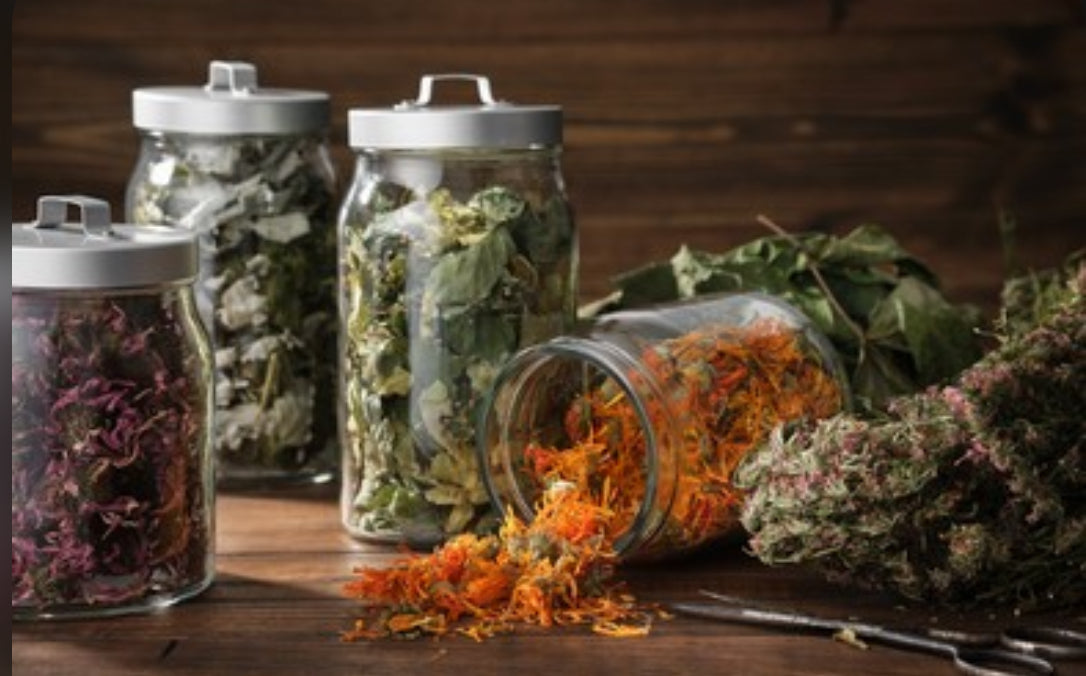
How to Store our Pesticide-Free Herbs
Share
At That Stuff Nutrition, we are committed to providing the highest quality products that nourish your body and support your overall wellness. That’s why we proudly use pesticide-free herbs in all of our offerings. From teas and tinctures to custom blends, our herbs are carefully sourced to ensure they are free from harmful chemicals, giving you a product as pure as nature intended.
Why We Choose Pesticide-Free Herbs
The decision to use pesticide-free herbs aligns with our mission of promoting health and healing. Here’s why:
1. No Harmful Residues: Pesticides leave behind chemical residues that can accumulate in the body over time. By choosing pesticide-free, you reduce your exposure to potentially harmful toxins.
2. Rich in Nutrients: Herbs grown without synthetic pesticides often retain higher levels of vitamins, minerals, and antioxidants, providing maximum nutritional benefits.
3. Better for the Environment: Supporting pesticide-free farming helps reduce soil, water, and air pollution, protecting the planet for future generations.
4. Health Benefits for the Body: Pesticide-free herbs support your body’s natural detoxification processes, boost immunity, and reduce inflammation. They’re a safe choice for anyone focused on long-term health and well-being.
How to Store Pesticide-Free Herbs
Storing pesticide-free herbs properly is key to maintaining their freshness, flavor, and potency—while also preventing pests. Here’s how to handle them from the moment they arrive.
Step 1: Freezing Upon Arrival
When your pesticide-free herbs arrive—often in a sealed plastic pouch—we recommend freezing the pouch for 1-2 days. This process ensures that any potential pests or eggs that may have traveled with the herbs are eliminated naturally, without the need for chemical treatments.
Step 2: Preparing for Storage
After freezing, remove the herbs from the freezer and allow the pouch to return to room temperature. This prevents condensation from forming when you open the bag, which could introduce moisture.
Step 3: Storing Fresh Herbs
For fresh herbs like basil, cilantro, or parsley:
• Refrigerate: Wrap them in a slightly damp paper towel to maintain hydration and place them in a breathable bag or container.
• Use a Jar: Alternatively, trim the stems and place the herbs in a jar with a small amount of water, covering the jar loosely with a plastic bag.
Step 4: Storing Dried Herbs
For dried herbs like chamomile, rosemary, or mint:
• Airtight Containers: Transfer the herbs into glass jars or BPA-free airtight containers. This keeps them fresh and protects them from moisture, air, and light, all of which can degrade their potency.
• Dark Storage: Store the containers in a cool, dry, and dark location, like a pantry or cupboard. Properly stored dried herbs can last up to a year.
Why Proper Storage Matters
Because our herbs are pesticide-free, they lack the chemical coatings that might deter pests or prolong shelf life artificially. This means they’re fresher and better for you—but they do require a little extra care to ensure they stay that way. By following these steps, you can enjoy their full benefits without worry.
Commitment to Quality
At That Stuff Nutrition, we believe that what you put into your body matters. Our pesticide-free herbs are a testament to that commitment, offering you the safest, most nutritious products possible. We’re proud to provide you with natural solutions that heal, restore, and nourish.
If you have any questions about our herbs or need guidance on storing them, feel free to reach out. Together, we can keep your health journey pure and powerful!
Key points to remember:
-
Dehydrated means dry:The whole point of dehydrating something is to remove most of the water content, leaving behind a dry product.
-
Freezing doesn't add moisture:When you freeze something, you are simply lowering its temperature, not adding water.
